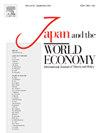日本和美国股市的后悔厌恶情绪:分析市场状况的影响
IF 1.2
4区 经济学
Q3 ECONOMICS
引用次数: 0
摘要
本研究从行为金融学的角度考察了投资者的后悔厌恶和后悔溢价对日本和美国股市投资决策和股票收益的影响。利用后悔变量,我们证明了后悔厌恶显著影响资产定价。我们的实证结果表明,投资者持有高后悔资产时要求更高的后悔溢价,即使在控制了各种公司特征后,这种关系仍然存在。通过分析市场状态和动态,我们发现后悔厌恶在下跌市场中特别强烈,尽管它的影响在上涨市场中减弱。市场动态分析表明,遗憾溢价在同时上升的市场趋势中最为明显。使用累积收益和行业调整短期收益逆转的稳健性检验进一步证实了后悔对股票收益的显著影响。此外,我们对非理性投资者行为(包括处置效应和心理价格障碍)的分析表明,在未实现资本损失和资产价格明显偏离心理价格障碍的情况下,后悔厌恶更为明显。本研究对后悔厌恶和市场动态对投资者行为和资产定价的影响提供了全面的见解,挑战了基于理性决策假设的传统金融理论。本文章由计算机程序翻译,如有差异,请以英文原文为准。
Regret aversion in Japanese and U.S. stock markets: Analyzing the effects of market conditions
This study examines the effects of investors’ regret aversion and regret premium on investment decision-making and stock returns in the Japanese and U.S. stock markets from a behavioral finance perspective. Using regret variables, we demonstrate that regret aversion significantly impacts asset pricing. Our empirical results show that investors demand a higher regret premium when holding high-regret assets, and this relationship persists even after controlling for various firm characteristics. By analyzing market states and dynamics, we find that regret aversion is particularly strong in down markets, though its influence weakens in up markets. Market dynamics analysis reveals that regret premiums are most pronounced during simultaneous upward market trends. Robustness tests using cumulative returns and industry-adjusted short-term return reversals further confirm the significant influence of regret on stock returns. Additionally, our analysis of irrational investor behavior, including the disposition effect and psychological price barriers, shows that regret aversion is more pronounced in the context of unrealized capital losses and when asset prices deviate significantly from psychological price barriers. This study provides comprehensive insights into the impact of regret aversion and market dynamics on investor behavior and asset pricing, challenging traditional finance theories grounded in the assumption of rational decision-making.
求助全文
通过发布文献求助,成功后即可免费获取论文全文。
去求助
来源期刊

Japan and the World Economy
ECONOMICS-
CiteScore
2.60
自引率
0.00%
发文量
26
审稿时长
46 days
期刊介绍:
The increase in Japan share of international trade and financial transactions has had a major impact on the world economy in general and on the U.S. economy in particular. The new economic interdependence between Japan and its trading partners created a variety of problems and so raised many issues that require further study. Japan and the World Economy will publish original research in economics, finance, managerial sciences, and marketing that express these concerns.
 求助内容:
求助内容: 应助结果提醒方式:
应助结果提醒方式:


